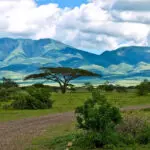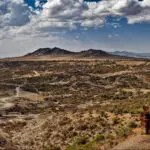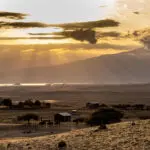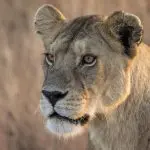Many travelers assume that Africa is a budget-friendly destination, but that perception often changes when planning a safari. Unlike city holidays, safaris take you deep into the wilderness, far from urban conveniences like airports and supermarkets. Everything needed for a safari, such as food, beverages, bedding and fuel, must be brought in, often from locations hours or even days away.
When you factor in the costs of highly skilled guides, park fees, and durable, specialized vehicles, the pricing starts to become clearer.
In this guide, we’ll help you understand what you’re paying for when booking a Tanzanian Safari. We will also provide tips on how to compare tour packages and ensure you’re getting good value for your money, not just a low price. If you have any questions while reading this blog, please get in touch.
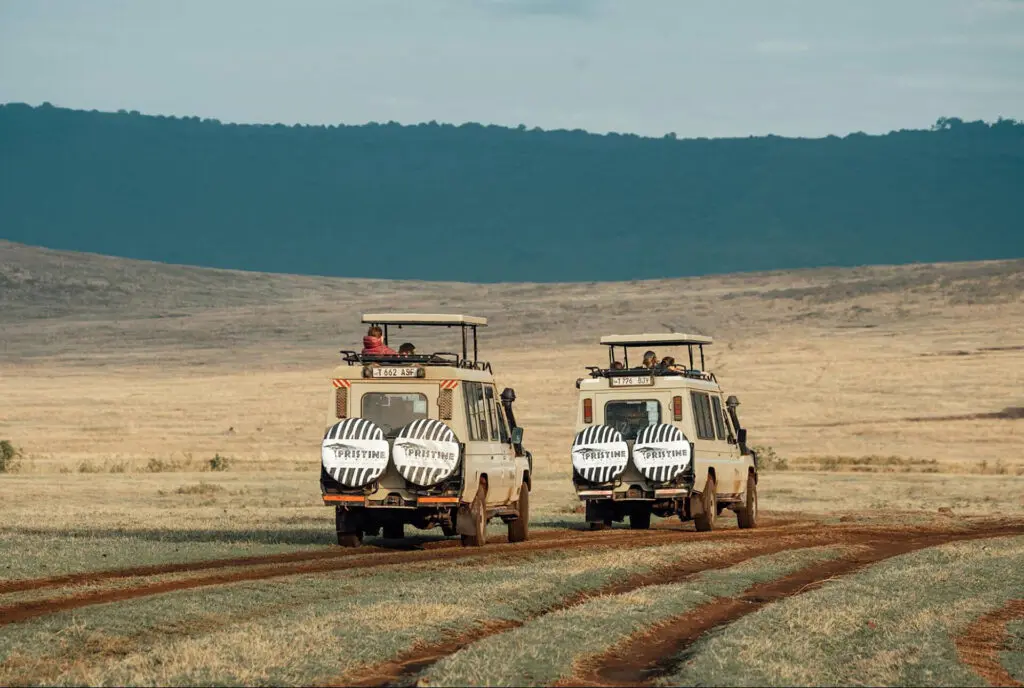
Why Safaris Cost More Than You Might Expect
A safari is not a run-of-the-mill holiday; it is a complex, remote, and highly coordinated experience. The cost reflects this reality. Unlike beach resorts or city hotels, safari lodges are often situated in areas where local resources are scarce. Everything must be brought in, including fuel, food, linens, fresh produce and even bottled water.
The infrastructure also plays a significant role. Operating a lodge in the bush involves using generators, solar panels, water purification systems, and maintaining a fleet of well-kept 4×4 vehicles, all of which require ongoing care. Additionally, the wildlife reserves levy conservation fees, which are crucial for the park conservation activities, like anti-poaching units, research and habitat upkeep.
In summary, safaris are not costly without good reason. They are thoughtfully designed experiences that depend on logistics, expertise, and local knowledge to offer you a front-row seat to some of the world’s most spectacular wildlife.
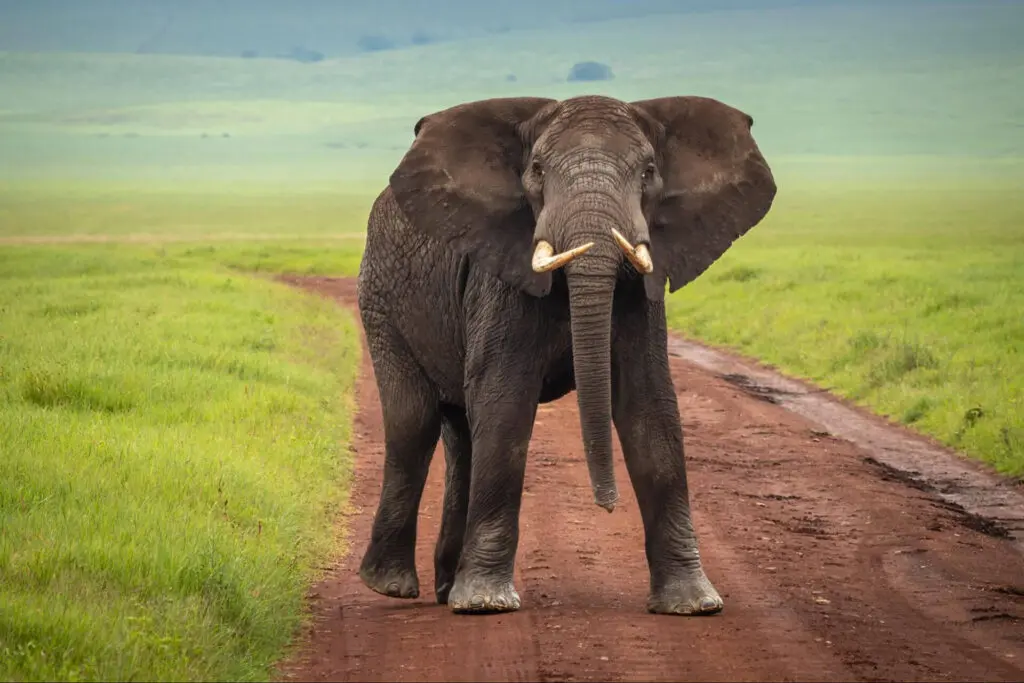
What’s Included in a Tanzania Safari Package?
When comparing tour options, it’s essential to understand what is included in the total cost. A package may seem expensive at first, but when you consider everything that’s covered, the value can become much clearer. Here are the main components that contribute to the overall cost of a safari:
Accommodation (50–70% of the total cost)
The primary factor affecting the price is where you stay. Lodges vary from simple tented camps to luxurious suites with private plunge pools and five-star service. Each type of lodge requires a dedicated team of staff to ensure everything runs smoothly. Quality accommodation is not just about comfort; it also includes the location, stunning views and proximity to wildlife.
Take a look at our Safari Accommodations in Tanzania to learn more.
Meals and Drinks When on Safari
Most safari packages include full board, which covers breakfast, lunch and dinner, all prepared by professional chefs. Lunch is sometimes served out in the bush during your game drives; many operators offer packed, boxed meals with some basic food items. Other companies offer fresh, hot meals, served on dishes in the middle of the parks. Drinking water is always provided, and depending on the lodge, some or all alcoholic beverages may also be included.
Your Safari Guides
A knowledgeable guide will greatly enhance your experience. Some say your guide makes or breaks your safari, as you spend countless hours with them over multiple days. Your guide serves as a host, tracker, wildlife expert, and storyteller. On a Pristine Trails safari, you’ll be accompanied by friendly and experienced guides who know the area intimately and can share fascinating insights while connecting with you on a personal level.
Transportation During a Tanzania Safari
Game drives are conducted in durable, safari-ready vehicles (Toyota Land Cruisers, in our case) equipped with pop-up roofs, large windows, coolers and charging ports. The cost also includes fuel, road fees and vehicle maintenance. For longer distances, you might take internal bush flights; these are quicker but can be pricier than driving.
Wildlife Conservation and Park Fees
Park entry fees, overnight charges, and other levies are crucial for preserving Tanzania’s protected areas. These fees support anti-poaching efforts and conservation programs, ensuring nearby communities benefit from tourism.
Taxes and Government Charges
Tanzania adds VAT and other levies to accommodation and tourism services, which are included in your package price. These charges help support national infrastructure and the local economy.
Optional Extras
Activities such as walking safaris, balloon flights, or cultural visits usually cost extra. A reliable tour operator will help you select add-ons that align with your interests and budget. You can check out the exclusive Add-Ons to Our Tanzania Tours.
How to Compare Safari Packages
At first glance, many safari itineraries look similar, with the same number of days, the same parks, and a general price range. However, if you dig deeper, you’ll often find significant differences in what’s included and what isn’t.
When reviewing an itinerary, it is essential to seek transparency. A well-prepared quote should outline accommodation names, board basis (full board versus half board), park fees, guide costs, transportation details, and any optional extras. If certain costs are not mentioned, such as internal flights, park entry fees, or drinking water, be sure to ask. These expenses can add up quickly if they are not included in the package.
Paying attention to small details can greatly enhance your experience. Factors such as the number of nights spent in each park, driving distances, or the quality of the 4×4 vehicle can make a significant difference. Understanding whether you will spend two nights or four in the Serengeti, or if you will be driving long hours each day or flying between locations, are crucial questions that help you make more accurate comparisons.
Some safari packages are designed for shared group tours, where you travel with other guests on a set itinerary. While these group safaris are usually more budget-friendly, they offer less flexibility. Private safaris, which are tailored specifically for you, provide more freedom regarding your pace, preferences and interests. If you are traveling as a couple, family, or group of friends, the added value of privacy can often justify the extra cost.
Remember that a lower price does not always equate to better value. One itinerary may feature top-rated lodges in prime locations, private vehicle use and an expert guide. In contrast, another may save themselves money with lower-end accommodations, poorly designed itineraries, or inexperienced staff. Consider what level of comfort, service, and exclusivity you desire for your trip and make sure to ask questions.
At Pristine Trails, we guarantee the utmost care in designing our Tanzania Safaris. Unfortunately, some unprincipled operators will advertise “luxury” experiences when what they are arranging is far from it. It can be difficult as a first-time traveler to discern the differences in accommodation types, locations and more. Even many lower level camps have the word “luxury” in their names. This is why due diligence before booking your travel is of paramount importance. Get to know your tour operator (we encourage phone calls!) and always ask plenty of questions concerning your itinerary.
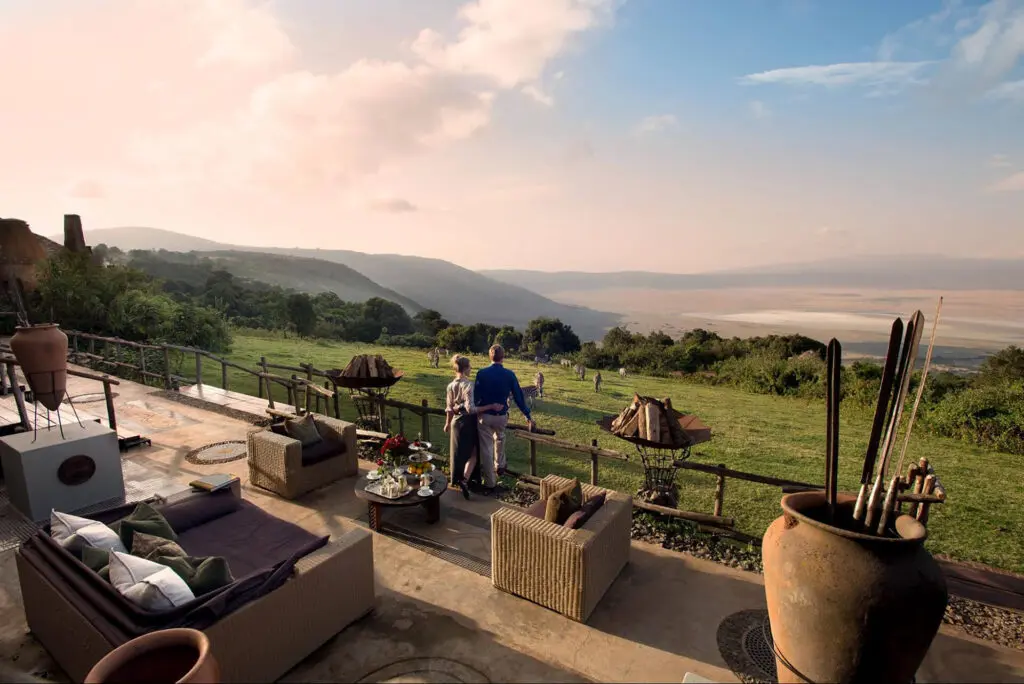
Value vs. Cost: What You’re Really Paying For
It’s tempting to shop around for the best deal, but when it comes to safari, the cheapest option may not be the smartest choice. Here’s why spending a bit more can make a significant difference:
Guides Make or Break Your Trip
Your guide is with you every step of the way, tracking animals, explaining behavior, ensuring your safety, and making each moment memorable. A well-paid, experienced guide offers much more than someone earning a minimal wage. At Pristine Trails, all our guides take immense pride in their work.
Quality Lodges Offer More Than Comfort
Top-tier accommodations are not just about comfortable beds and good food. They provide access to better wildlife areas, passionate staff, and a level of service that transforms a good trip into a great one. Cheaper camps may save you money, but they are often located farther from key wildlife zones with subpar service.
Smooth Logistics Save Time and Stress
Higher-quality operators plan itineraries that maximize your time on safari and minimize unnecessary travel. Bush flights, private vehicles, and smart routing help you avoid burnout and keep the experience immersive. Our Tanzania Safari Itineraries are all customizable, meaning a unique adventure for every traveler.
Why Working with a Trusted Operator Matters
Planning a safari is not like booking a beach resort or a 2-day city break. It’s a complex affair that depends on timing, coordination, and in-depth knowledge of the destination. Working with a local, experienced operator like Pristine Trails can make a significant difference. Local knowledge is essential. We are familiar with the parks, the seasons, the roads, and the lodges. Most importantly, we understand the wildlife. We can inform you about where the migration is likely to be in August or which hidden corners of Tarangire are best to visit in October. This kind of insight only comes from being on the ground.
Strong relationships lead to better experiences. We work closely with a carefully selected group of lodges, which allows us access to preferred rates, room allocations during peak season, and greater flexibility with dates than larger third-party agencies can offer. You will have a single point of contact from start to finish. From the moment you first contact us, we will handle every detail of your planning. This means no middlemen, no confusion, and no surprises.
We also provide support when you need it most. If something unexpected occurs, such as a delayed flight, illness, or a last-minute change of plans, you will have a real person on the ground to assist you. We are here for you, ready to help!
Now, begin planning the adventure of a lifetime. Explore our African Safaris in Tanzania for inspiration and get ready for your visit to one of the most extraordinary places on planet Earth!
